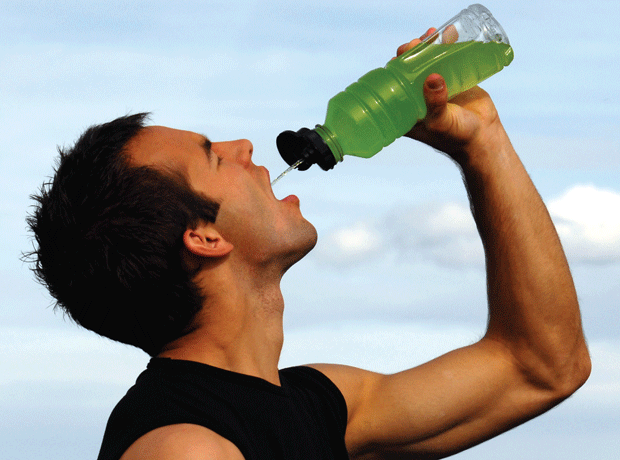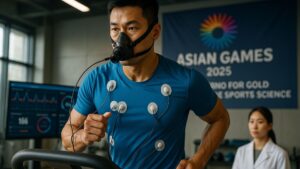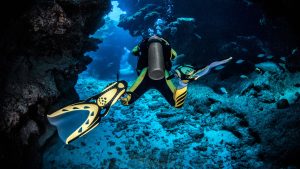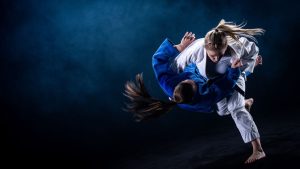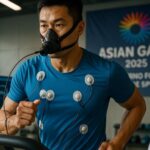Introduction
The number of athletes getting involved in sport is increasing. However, despite the pursuit of optimal physical and mental health, oral health is often undervalued. In comparison to their sedentary counterparts, people who regularly exercise are predisposed to a number of potential oral health risk factors. These are linked to training methods, the nutritional demands of physical exercise and hypo-salivation during sporting effort. Indeed athlete’s dietary habits can be one of the major risk factors for developing bad oral health. This is somewhat surprising, given the attention placed upon nutrition for peak performance. In order to understand potential oral health consequences linked to athletes’ eating habits, we must be aware of their energy demands, both quantitatively and qualitatively, to improve performance. Athletes have much higher energy requirements than the general population and also require a higher proportion of certain nutrients potentially hazardous to oral health if consumed in excess. Also eating disorders can cause oral health problems along with general health issues. Thus, all these factors have to be studied both by the sports dentist and the sports nutritionist together and workout strategies that will favour both oral health and improve performance. This is where Sports Nutrition gets interlinked with Sports Dentistry.
Let us understand some of the risk factors involved in detail and strategies that can be planned to overcome them.
Oral health risk factors in sports related to athlete’s diet:
1) Type of food consumed: In periods of intense training, an athlete’s energy requirement shoots up. An increased need for energy means more food and fluid more often. An athlete obviously needs to follow a balanced diet, but must pay attention to his/her hydration, energy levels and sources of energy during exercise. Adapted to physical performance, it is not necessarily appropriate for optimal oral health. Example, commercialised sports drinks, energy bars and gels are becoming increasingly popular during both training and competition. The drinks contain relatively high amounts of carbohydrates (sugars), salt and citric acid (fruit), whereas the food supplements are loaded mainly with carbohydrates. All supplements aim to improve performance. But they increase the risk of developing dental decay and erosion.
It is the high sugar (carbohydrate) content of most sports supplements (and other carb rich foods as well) which increases the risk of decay. Bacterial fermentation of these sugars produces an acidic by-product, which causes demineralisation of enamel when the pH of the dental surface descends below 5.5. In normal circumstances, this process is reversible and entails remineralisation of the affected surface. However, specific eating habits during sporting activity can increase risk of a continuous carious process. The cycle of demineralisation-mineralisation is disrupted by frequent snacking of sports supplements, particularly in the absence of adequate oral hygiene. This reduces the buffering capacity and remineralisation potential of the oral environment. Similarly, due to their high fruit, hence citric acid, content, sports drinks facilitate enamel and dentin erosion. An athlete typically drinks small sips every 30 minutes during a given sporting event, as this equates to the diminution of his muscle glycogen reserves. Unfortunately, the buffering of oral acidity diminishes during prolonged aerobic exercise. Demineralisation is constantly reactivated and the process of dental erosion is accelerated.
2) Hyposalivation: Saliva is multi-functional. It is a lubricant and protects the oral cavity from infection and acid demineralisation. Both a qualitative and quantitative alteration of saliva’s constituents have deleterious effects on the oral cavity. A decrease in saliva production during physical exertion, a phenomenon known as hyposalivation, or xerostomia in the case of complete interruption, is particularly detrimental to athlete’s oral health. The main reasons leading to hyposalivation in athletes is stress associated to the competition, heat production during exercise and buccal respiration or habitual mouth breathing. Those athletes are more prone to dental decay and erosion who participate in several prolonged efforts, resulting in frequent episodes of hyposalivation and impairment of saliva’s protection against enamel demineralization. . Frequent snacking of sports supplements and even other high carb foods particularly in the absence of adequate oral hygiene, reduces the buffering capacity and remineralisation potential of the saliva. Thus, hyposalivation during physical effort exacerbates the athlete’s risk for dental caries and erosion and opportunistic infections of the oral cavity.
3) Eating disorders in athletes: Many people who participate in sport with the intention of losing weight and becoming fit. But looking fit and exercise can become an obsession with some along with putting restriction on eating habits. Body dissatisfaction is common amongst women in Western society, and even in urban Indian society as the ‘perfect body’ associated to beauty is often unrealistic. Unfortunately, this problem is accentuated in athletes. Here, the sportsperson may wish to lose weight, not just to be more ‘physically attractive’ but to improve performance.
The two most common eating disorders which may result are anorexia nervosa and bulimia nervosa. Anorexia nervosa is characterised by a refusal to eat. Bulimia nervosa is characterised by binge eating, accompanied by vomiting or laxative usage. Although eating disorders are common in adolescents and young adults, studies have found a higher incidence amongst athletes than the general population. Unfortunately, the psychological and physiological repercussions of chronic eating disorders have a detrimental impact on oral health. They can cause dental erosion, tooth sensitivity, dental disease, periodontal disease and even temporomandibular disorders. As athletes are more vulnerable to erratic eating habits, they are at a higher risk of developing these oral problems.
Strategies that can be planned by the Sports Dentist and the Sports Nutritionist –
- Regular dental assessment and nutrition assessment done by both. While doing dental assessment, diet history has to be taken into account by the sports dentist and while doing the nutrition assessment, a basic dental history has to be taken into account by the sports nutritionist.
- Collaborative programs must be conducted together to make athletes aware about both their dietary and oral health needs. Correct guidance regarding diet and correct brushing techniques need to be taught to athletes at all levels.
- Education regarding types of supplements and correct guidance regarding them should be given. Sports dentists and nutritionists must jointly conduct programs for athletes, coaches and parents to provide them with guidance on self-diet evaluation and motivation for oral hygiene habits. Lack of motivation and lack of access to dental care are very big factors for neglected oral care and it’s very important to overcome them.
- Dental treatments that need to be performed have to be discussed together mainly to remove the source of causing decay and erosion by modifying the athlete’s diet. The sports dentist can visit the sports nutritionist for doing oral health assessment of athletes. And if any athlete has specific issues like severe decay/erosion caused by eating disorders or erratic habits, the sports nutritionist can visit the dentist at the time of dental appointments to further help in the treatment. It is important to note at this junction, that there is a high chance that in such cases, collaboration with the sports psychologist might be necessary.
Many times, especially for athletes who need prolonged hard training, it becomes difficult to change the athlete’s diet. In such cases, sports dentists can share a host of tips on how to make small and simple changes in consuming sports drinks and carb-rich foods so that the harm to oral health is drastically reduced.
If you are an athlete or coach or related person reading this, you can contact our faculty Sports Dentist Dr. Sneha Divekar on 9822910294 who runs a Sports Dentistry Centre and has a good amount of knowledge of Sports Nutrition. With the help of the Sports Nutritionist she can plan/modify your diet and oral hygiene habits. For any Sports Nutritionist reading this, Dr Sneha can visit your clinic or sports club as a Consultant Sports Dentist and help resolve your queries. If you are a dentist who is interested in sports dentistry and want to know more about our “Certificate in Sports Dentistry” course, you can contact us on 7972624645. We have included basic information on Sports Nutrition and Oral Health as part of our Sports Dentistry program.
Photo Source – The Grocer (UK).

